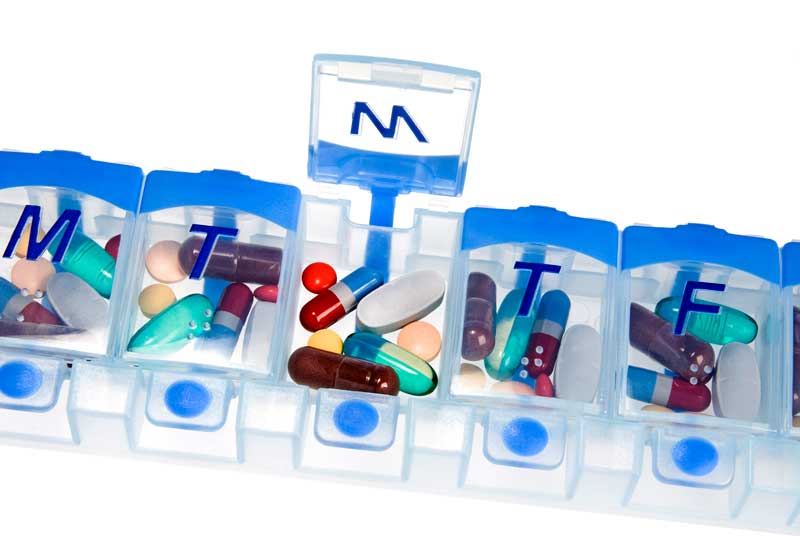Have you ever wondered how much of each vitamin and mineral you should be consuming every day? It can be confusing to know exactly what your body needs to stay healthy and thrive. But don’t worry, in this article we’ll break down the recommended daily intake for various vitamins and minerals, so you can make sure you’re getting all the nutrients your body needs.
Vitamins and minerals play a crucial role in our overall health and well-being. They are essential for proper growth and development, as well as for maintaining a strong immune system and preventing chronic diseases. The recommended daily intake for each nutrient varies depending on factors such as age, sex, and activity level, so it’s important to know what your specific needs are.
In the upcoming sections, we will delve into the recommended daily intake for some of the most important vitamins and minerals, including vitamin C, vitamin D, calcium, iron, and magnesium. We’ll explain why these nutrients are important, how much you need each day, and provide examples of food sources where you can find them. So, stay tuned to learn more about optimizing your vitamin and mineral intake for a healthier you.
Why is daily intake of vitamins and minerals important?
Preventing nutrient deficiencies
A well-balanced diet is essential for maintaining good health and overall well-being. It is important to consume a variety of vitamins and minerals in the right amounts to prevent nutrient deficiencies. These deficiencies can lead to a range of health problems such as weakened immune system, fatigue, impaired cognitive function, and increased susceptibility to chronic diseases.
When your body lacks certain vitamins and minerals, it may not function optimally. For example, a deficiency in vitamin C can lead to scurvy, while inadequate intake of calcium can lead to weak bones and increased risk of osteoporosis. By ensuring you meet the recommended daily intake of vitamins and minerals, you can reduce the risk of nutrient deficiencies and maintain good health.
Supporting overall health and wellbeing
Vitamins and minerals play essential roles in various bodily functions, supporting overall health and wellbeing. They are involved in processes such as energy production, strong immune function, proper growth and development, maintenance of healthy skin and hair, and regulation of hormones and enzymes.
By consuming vitamins and minerals in the recommended amounts, you provide your body with the necessary nutrients to carry out these functions effectively. This can help improve your energy levels, enhance your immune system, promote healthy skin and hair, support mental health, and ensure optimal functioning of all bodily systems.
Now, let’s explore the recommended daily intake for some of the most important vitamins and minerals:
Vitamin A
Functions of vitamin A in the body
Vitamin A is a fat-soluble vitamin that plays a vital role in vision, immune system function, reproduction, and cellular communication. It is responsible for maintaining the health of epithelial tissues, including the skin and mucous membranes, and is important for normal growth and development.
Recommended daily intake of vitamin A
The recommended daily intake of vitamin A varies depending on age and gender. For adult men, the recommended dietary allowance (RDA) is 900 micrograms of vitamin A equivalents (RAE), while adult women require 700 micrograms RAE per day. Pregnant and lactating women have slightly higher requirements.
Food sources of vitamin A
Vitamin A can be obtained from both animal and plant sources. Animal sources include liver, fish, and dairy products, while plant sources include orange and yellow fruits and vegetables, such as carrots, sweet potatoes, and mangoes.
Vitamin B complex
Different types of B vitamins
The vitamin B complex consists of eight different vitamins, including thiamine (B1), riboflavin (B2), niacin (B3), pantothenic acid (B5), pyridoxine (B6), biotin (B7), folate (B9), and cobalamin (B12). Each B vitamin has its own unique functions in the body.
Roles of B vitamins in the body
Collectively, B vitamins are involved in energy production, brain function, red blood cell production, DNA synthesis, and the proper functioning of the nervous system. They also play a significant role in metabolism and the breakdown of carbohydrates, fats, and proteins.
Recommended daily intake of B vitamins
The recommended daily intake of each B vitamin varies depending on factors such as age, gender, and individual needs. For example, the RDA for thiamine is 1.2 milligrams for men and 1.1 milligrams for women, while the RDA for vitamin B12 is 2.4 micrograms for adults.
Food sources of B vitamins
B vitamins can be found in a wide variety of foods. Good sources of B vitamins include whole grains, legumes, meat, poultry, fish, eggs, dairy products, leafy green vegetables, nuts, and seeds.
Vitamin C
Benefits of vitamin C
Vitamin C is a water-soluble vitamin with powerful antioxidant properties. It is crucial for the synthesis of collagen, a protein that supports the health of skin, blood vessels, tendons, and ligaments. Vitamin C also supports immune function, helps in the absorption of iron, and acts as an antioxidant, protecting cells from oxidative damage.
Recommended daily intake of vitamin C
The recommended daily intake of vitamin C for adults is 75-90 milligrams for women and 90 milligrams for men. During times of illness or stress, higher doses may be recommended.
Food sources of vitamin C
Citrus fruits, such as oranges and grapefruits, are well-known sources of vitamin C. Other good sources include kiwi, strawberries, pineapple, mango, bell peppers, broccoli, and leafy green vegetables.
Vitamin D
Importance of vitamin D
Vitamin D is unique because it can be produced by our bodies when exposed to sunlight. It plays a critical role in calcium absorption and bone health. Additionally, vitamin D is involved in immune function, cell growth and differentiation, muscle function, and reducing inflammation.
Recommended daily intake of vitamin D
The recommended daily intake of vitamin D is 600-800 international units (IU) for most adults. However, individuals with limited sun exposure, darker skin, or who are older may require higher amounts.
Sources of vitamin D
Vitamin D can be obtained from sunlight, food sources, and supplements. Sun exposure is an excellent way to naturally increase your vitamin D levels. Good dietary sources include fatty fish (such as salmon and mackerel), fortified dairy products, fortified cereals, and egg yolks.
Calcium
Functions of calcium in the body
Calcium is essential for the development and maintenance of healthy bones and teeth. It also plays a role in muscle function, nerve transmission, blood clotting, and hormone secretion.
Recommended daily intake of calcium
The recommended daily intake of calcium varies depending on age and gender. For adults aged 19-50, the RDA is 1000 milligrams, which increases to 1200 milligrams for women over 50 and men over 70.
Calcium-rich food sources
Dairy products, such as milk, cheese, and yogurt, are well-known sources of calcium. Other sources include tofu, leafy green vegetables (like kale and spinach), fortified plant-based milk alternatives, and sardines.
Iron
Role of iron in the body
Iron is an essential mineral that plays a vital role in oxygen transport and energy production. It is a key component of hemoglobin, a protein in red blood cells that carries oxygen to all parts of the body.
Recommended daily intake of iron
The recommended daily intake of iron varies depending on age, gender, and life stage. For adult men and postmenopausal women, the RDA is 8 milligrams, while premenopausal women require 18 milligrams per day.
Iron-rich food sources
Animal sources of iron, known as heme iron, include red meat, poultry, and seafood. Plant-based sources, called non-heme iron, include legumes, tofu, spinach, and fortified cereals.
Magnesium
Functions and benefits of magnesium
Magnesium is involved in over 300 biochemical reactions in the body. It plays a crucial role in energy production, muscle and nerve function, blood pressure regulation, and maintaining healthy bone structure.
Recommended daily intake of magnesium
The recommended daily intake of magnesium varies based on age and gender. For adult men, the RDA is 400-420 milligrams, and for adult women, it is 310-320 milligrams.
Food sources of magnesium
Good sources of magnesium include nuts, seeds, legumes, whole grains, leafy green vegetables, and dark chocolate.
Zinc
Importance of zinc for the body
Zinc is an essential mineral that is involved in many enzymatic reactions in the body. It plays a critical role in immune function, protein synthesis, DNA synthesis, wound healing, and normal growth and development.
Recommended daily intake of zinc
The recommended daily intake of zinc varies depending on age and gender. For most adults, the RDA is 8-11 milligrams.
Zinc-rich food sources
Excellent sources of zinc include oysters, beef, poultry, beans, nuts, and whole grains.
Conclusion
In conclusion, meeting the recommended daily intake for various vitamins and minerals is crucial for optimal health and well-being. By ensuring you consume an array of nutrient-rich foods, you can prevent nutrient deficiencies, support overall health, and provide your body with the necessary tools for proper functioning.
Remember to consult with a healthcare professional or registered dietitian if you have specific dietary needs or concerns. They can help you determine the appropriate daily intake of vitamins and minerals for your individual needs. So go ahead, make nutritious food choices and take care of your body – it’s the only one you have!











